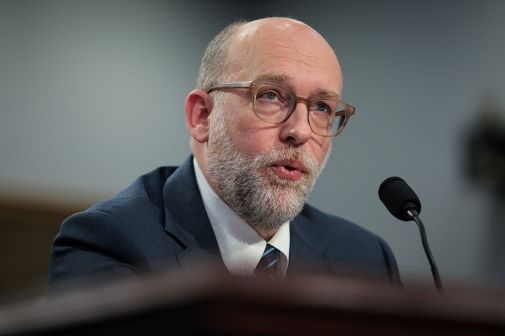The federal government has been given its “permission slip to innovate,” U.S. Chief Information Officer Steven VanRoekel said Thursday when discussing the 1-year anniversary of the Digital Government Strategy.
VanRoekel said the Digital Government Strategy and the recently released open data policy, along with the orders and memos accompanying them, give federal agencies the freedom to think outside the box and use innovation within the constructs of efficiency.
“People are expecting more digitally from their government,” VanRoekel said. “How do you take the fiscal pressures and the security issues, and bring all of that together to deliver a product? The only way is by being innovative.”
Along with serving as the first anniversary of the strategy, May 23 also marked the deadline for various key deliverables within the strategy. By today, federal agencies must have two completed application programming interfaces and a robust developer page on their website.
VanRoekel said the strategy has allowed the government to wake up and think about how it uses technology to solve the problems of the 21st century.
Of those, VanRoekel mentioned wanting 2013 to be the year the government does away with its monolithic thinking of the past.
“Before when government had a monolithic problem, it went to a monolithic vendor for a monolithic solution,” VanRoekel said. “The private sector has shown that this approach is no longer necessary and that technology can solve problems in a myriad of ways. When we look back in history – 10 to 15 years from now – I want people to see 2013 is when this stopped.”
VanRoekel highlighted four key results of the digital strategy:
Information centric
Over the past year, VanRoekel said, the government has significantly shifted how it thinks about digital information — treating data as a valuable national asset that should be open and available to the public, entrepreneurs and others, instead of keeping it trapped in federal systems.
Shared platform
The federal government and citizens cannot afford to have each agency build isolated and duplicative technology solutions, VanRoekel said. Instead, the government must use modern platforms for digital services that can be shared across agencies. One example is the new wireless service blanket purchase agreement the General Services Administration announced May 22.
Customer centric
VanRoekel said Americans shouldn’t have to struggle to access the information they need. To ensure citizens can easily find federal services, the government announced Thursday it has implemented a governmentwide Digital Analytics Program.
Security and privacy
Throughout these efforts, maintaining cybersecurity and protecting privacy have been paramount, VanRoekel said. He added because mobile devices and wireless networks have unique security challenges, the government published the first comprehensive mobile and wireless security baseline to help agencies identify appropriate security solutions and share them.






